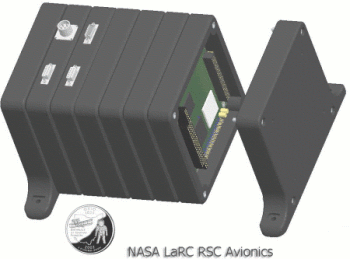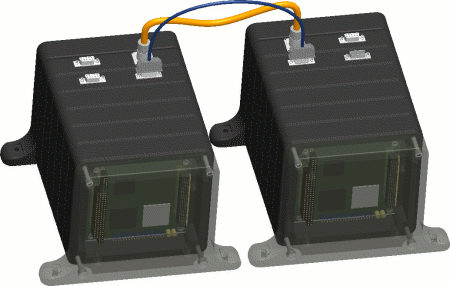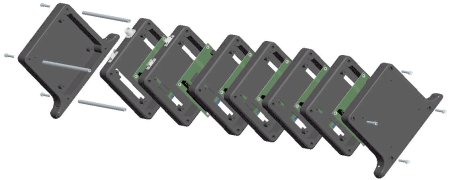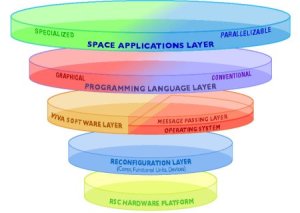NASA preps reconfigurable Linux SBCs for next-gen rovers
Jul 19, 2005 — by Henry Kingman — from the LinuxDevices Archive — views NASA has contracted the University of Queensland, Australia, to collaborate on a version of Linux for use in the Agency's $18M Reconfigurable Scalable Computing (RSC) project. The project aims to increase the speed and flexibility of computers used in planetary rovers, mining vehicles, cameras, and sensors.
NASA has contracted the University of Queensland, Australia, to collaborate on a version of Linux for use in the Agency's $18M Reconfigurable Scalable Computing (RSC) project. The project aims to increase the speed and flexibility of computers used in planetary rovers, mining vehicles, cameras, and sensors.
Currently, NASA's Mars Rover is rather famous for using Wind River's proprietary VxWorks real-time operating system (RTOS) — Wind River uses images of the Rover in advertisements and trade show materials.
 Another Mars landing program, Britain's Beagle-2, used Linux in its planetary rover (pictured at right). However, that project apparently failed to land the rover safely, as communication was lost shortly before landing was attempting.
Another Mars landing program, Britain's Beagle-2, used Linux in its planetary rover (pictured at right). However, that project apparently failed to land the rover safely, as communication was lost shortly before landing was attempting.
NASA's RSC program aims to build modular clusters of stackable SBCs measuring 10 x 13 cm, and powered by FPGAs (field programmable gate arrays) running uClinux on reconfigurable softcores. NASA engineers will be able to re-program the FPGAs remotely (really remotely), adapting them to changing conditions or reassigning their computing resources as required. Additionally, the SBCs will be capable of dynamic self-reconfiguration, if all goes as planned.



Mockups of NASA's RSC modules. Note the US quarter, for scale, in top image
(Click each image to enlarge)
The RSC project involves a number of US computing vendors and consultants, along with one foreign element — the University of Queensland (UQ) will be the only non-US participant in the project, according to Australian IT. UQ and will be paid $860,000 for helping to create operating system software to power the reconfigurable systems.
NASA reportedly chose the UQ in part due to the open source work of researcher John Williams, PhD., in adapting Linux for use on FPGAs, according to an excellent overview in the UQ News Online. Williams is currently a co-investigator on NASA's RSC project.

Architecture of NASA's Scalable Reconfigurable Computer
(Click to enlarge)
A whitepaper authored by Williams and Dr. Neil Bergmann describes the UQ's approach to dynamically and self-reconfigurable systems, and shows that Linux is a natural and powerful platform for implementing such systems. For example, it demonstrates how simple bash shell scripts can be used to perform complex operations, such as obtaining partial bit streams from remote servers, and initiating reconfiguration. For lots of technical detail on this project, read the complete whitepaper:
This article was originally published on LinuxDevices.com and has been donated to the open source community by QuinStreet Inc. Please visit LinuxToday.com for up-to-date news and articles about Linux and open source.